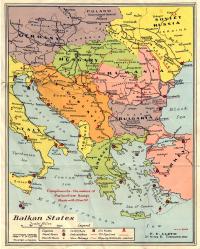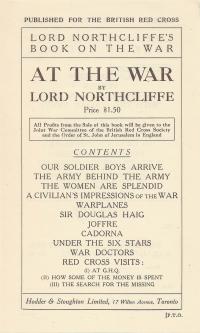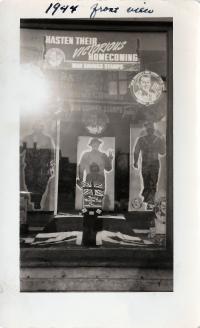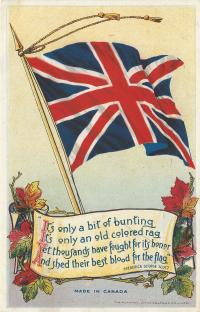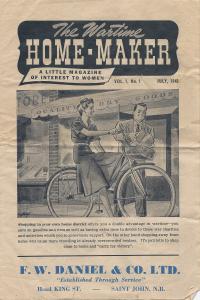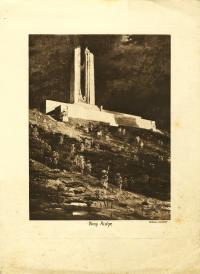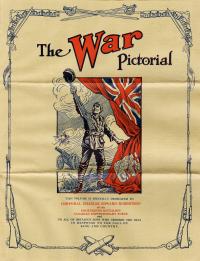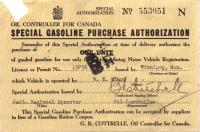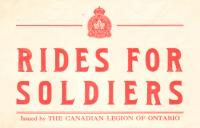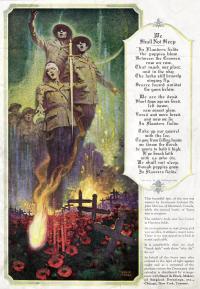Shopping
The war so far ...
Because so much of the fighting took place in regions that were unfamiliar to Canadians, war maps were enormously popular, for they simplified complicated events and allowed civilians to make sense of news coming from the war fronts.
The war from all sides
British press baron Lord Northcliffe published this contemporary history of the Great War, with proceeds going to the British Red Cross Society and the Order of St John.
Window shopping in wartime
These photographs, possibly taken in Vancouver, show a store window given over to advertising in support of War Savings Stamps. As an interesting remark, it is possible to see in the lower section of the second photograph, an advertisement on War Savings Stamps. The ad, which reads "This is your war too! Take your change in War Saving Stamps" features a popular illustration which also appears in other publications like this pamphlet.
Selling insurance with the flag
Using a verse by poet Frederick George Scott, an insurance company played on First World War patriotism as an advertising strategy.
Being a careful shopper
This modest pamphlet, published in Saint John, New Brunswick, was one of many that combined advertising with tips for women on how to cope with wartime shortages.
The Ghosts of Vimy Ridge
Longstaff's painting was hugely popular and widely reproduced, but was anyone offended when a funeral home distributed copies it for advertising purposes?
A wartime sales pitch
To capitalize on public sentiment, Dodds-Simpson Press offered specially inscribed bound volumes of a popular illustrated magazine to the families of Canadians in uniform - the addresses having been supplied by the federal government.
Driving in wartime
The federal government placed strict limits on the purchase of gasoline during the Second World War, but extra fuel could be made available under special circumstances.
Rides for soldiers
Hitch-hiking was very common in the 1940s and this sign, placed on the car's dashboard or glued to a window, indicated that the driver was happy to give a ride to anyone in uniform.
In Flanders Fields
John McCrae's poem "In Flanders Fields" appeared in many advertisements during and after the First World War - but was it in poor taste for it to be used by a maker of surgical dressings?

